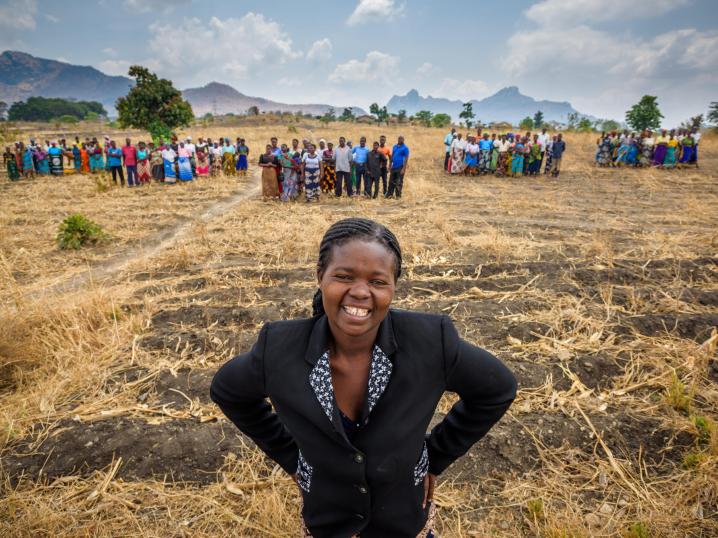Women Farmers THRIVE in Malawi

In Ireen Madzumbi's community, World Vision's THRIVE project taught farmers new ways to farm. Ireen learned she could grow crops all year long by using water from ponds on her property. She learned that vegetables, like beans and potatoes, could be planted together at the same time. Ireen had been using poor quality seeds and fertilizer so she got a small loan from VisionFund, World Vision’s microfinance arm, to purchase better inputs. She was trained in soil and water conservation through a technique called Farming God’s Way, covering her corn with grass and leaves, keeping the soil cooler and moister. The community stopped cutting down trees, pruning them instead for fuel—wood they use for cooking and heating.
Ireen is razor sharp and hardworking. In no time, the community elected her to become their leader. She leads five groups of farmers—called commercial producer groups—who farm individually but sell together. Working this way turns subsistence farming into a business. The community began to pull together like never before.
“Everybody had been doing it on their own,” she says. “Now we would do things together.” A community once at the mercy of middlemen now sells high value crops like soy and peanuts as a group and makes a good profit. Ireen has become the person in the middle, brokering sales, and using gross margin analysis to ensure a healthy profit. She works with experts in market access from Farm Concern International to find good buyers for high value crops like soy.
“Ireen is a very hardworking woman. She is very clever. She’s a good listener,” says Yamikani Kampeni (wearing tan hat, dark jacket, sunglasses and green, blue, white skirt), 25, of Farm Concern International. “I taught her to do gross margin analysis. She found markets in Blantyre.” Yamakani says that farmers had so much to learn. “When we started,” she says, “the farmers didn’t know how to collect commodities together. Now when the buyer comes, he doesn’t go house to house. When we sell a lot of product together, they get a better price. They’re not wasting fuel and they’re not wasting time.” Because they now have savings, farmers are now able to hold onto their crops to sell when prices are high instead of selling them at low prices right away for fast cash.